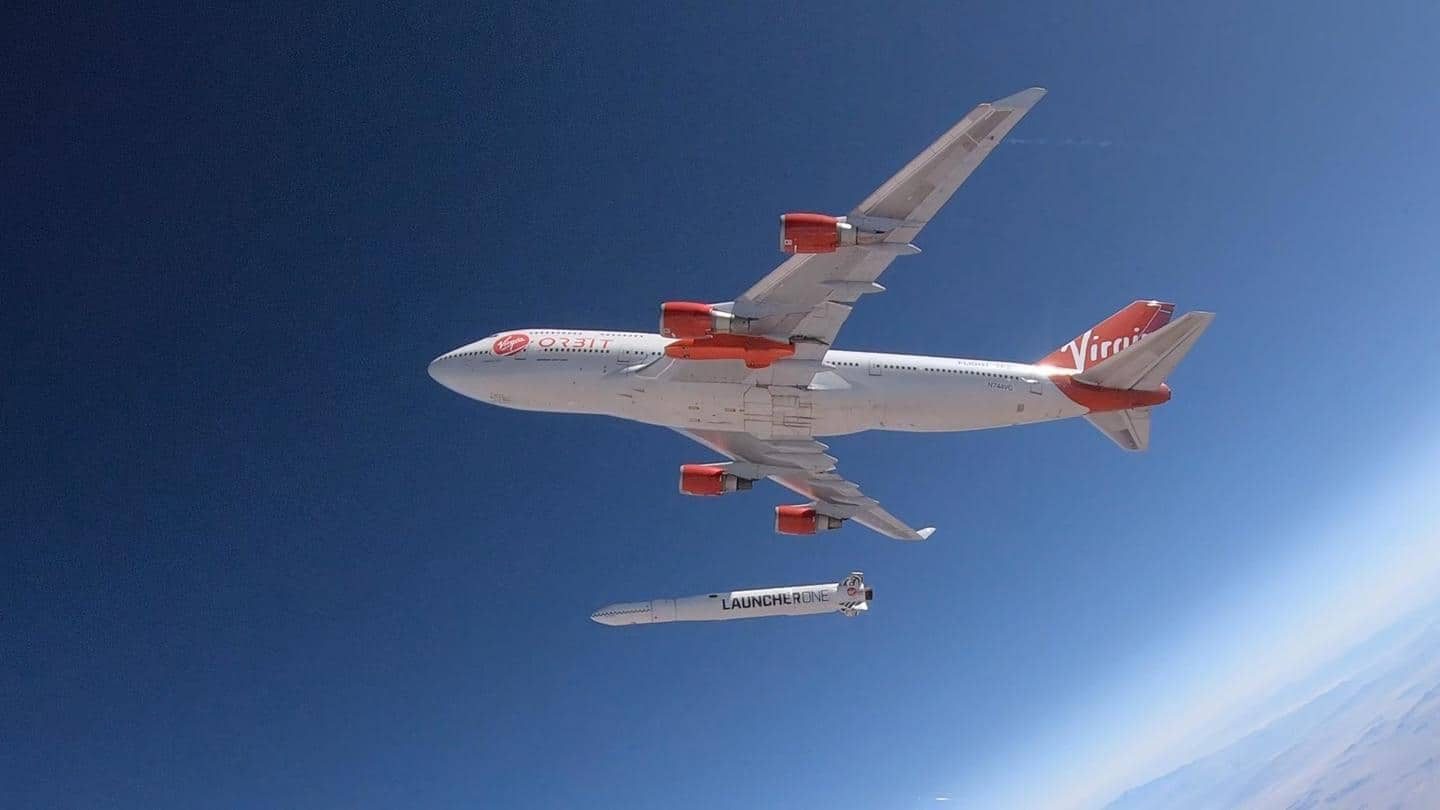
Virgin Orbit sends 10 satellites to space with air-launched rocket
What's the story
Billionaire Richard Branson's Virgin Orbit launched 10 satellites into orbit on Sunday in a successful test of its key air-launched rocket.
The rocket was notably launched mid-air from the underside of a modified Boeing 747 nicknamed Cosmic Girl.
Sunday's launch was a major success for Virgin as it comes months after the rocket's first test launch was aborted in May last year.
Launch
Rocket launched from 35,000 feet over Pacific
After leaving its base in California's Mojave desert, the LauncherOne rocket was dropped mid-air by the modified 747 aircraft roughly 35,000 feet over the Pacific Ocean at 11:39 am PT (1:09 am IST).
The rocket then ignited its NewtonThree engine to boost itself out of Earth's atmosphere to successfully reach space.
It then delivered 10 satellites for NASA into orbit.
Quote
'Miles beyond how far we reached in first launch'
"According to telemetry, LauncherOne has reached orbit!" Virgin Orbit announced on Twitter.
"In both a literal and figurative sense, this is miles beyond how far we reached in our first Launch Demo," it said, "We are so, so proud to say that LauncherOne has now completed its first mission to space, carrying 9 CubeSat missions into Low Earth Orbit for our friends @NASA."
Advantage
What are the advantages of a mid-air launch?
According to Virgin executives, a high-altitude launch allows satellites to be placed in their intended orbit more efficiently.
Such a launch also minimizes weather-related cancellations compared to rocket launches from a ground pad, they say.
Further, a mid-air launch theoretically allows for a rocket to be launched from anywhere. Virgin Orbit would, however, need to be licensed in the locality where it is used.
Other details
Virgin Orbit enters competitive commercial space race
Virgin Orbit has now emerged as a notable figure in the competitive commercial space race among tough rivals such as Rocket Lab and Firefly Aerospace.
Its government services subsidiary VOX Space LLC is selling launches using the system to the US military.
The first such mission is slated for October under a $35 million United States Space Force contract for three missions.